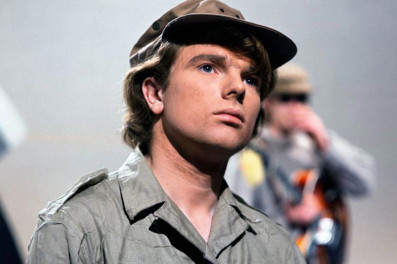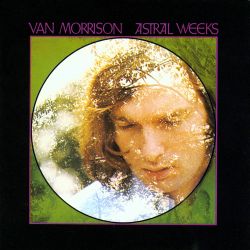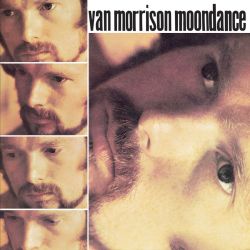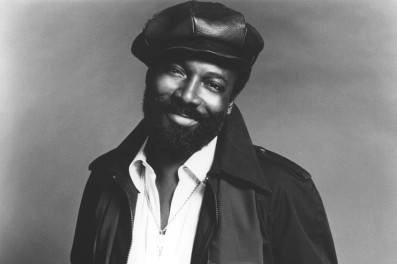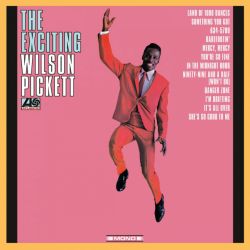Van Morrison
Sir George Ivan Morrison OBE (born 31 August 1945) is a Northern Irish singer-songwriter, instrumentalist and record producer. His professional career began as a teenager in the late 1950s playing a variety of instruments including guitar, harmonica, keyboards and saxophone for various Irish showbands, covering the popular hits of that time. Van Morrison rose to prominence in the mid-1960s as the lead singer of the Northern Irish R&B band Them, with whom he recorded the garage band classic "Gloria". His solo career began under the pop-hit oriented guidance of Bert Berns with the release of the hit single "Brown Eyed Girl" in 1967. After Berns's death, Warner Bros. Records bought out his contract and allowed him three sessions to record Astral Weeks (1968). Though this album gradually garnered high praise, it was initially a poor seller.
Moondance (1970) established Morrison as a major artist, and he built on his reputation throughout the 1970s with a series of acclaimed albums and live performances. He continues to record and tour, producing albums and live performances that sell well and are generally warmly received, sometimes collaborating with other artists, such as Georgie Fame and The Chieftains.
Much of Morrison's music is structured around the conventions of soul music and R&B, such as the popular singles "Brown Eyed Girl", "Jackie Wilson Said (I'm in Heaven When You Smile)", "Domino" and "Wild Night". An equal part of his catalogue consists of lengthy, loosely connected, spiritually inspired musical journeys that show the influence of Celtic tradition, jazz and stream-of-consciousness narrative, such as the album Astral Weeks and the lesser known Veedon Fleece and Common One. The two strains together are sometimes referred to as "Celtic soul". He has received two Grammy Awards, the 1994 Brit Award for Outstanding Contribution to Music, the 2017 Americana Music Lifetime Achievement Award for Songwriting and has been inducted into both the Rock and Roll Hall of Fame and the Songwriters Hall of Fame. In 2016, he was knighted for services to the music industry and to tourism in Northern Ireland. He is known by the nickname Van the Man to his fans.
Source Wikipedia
